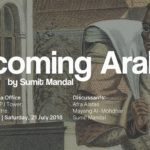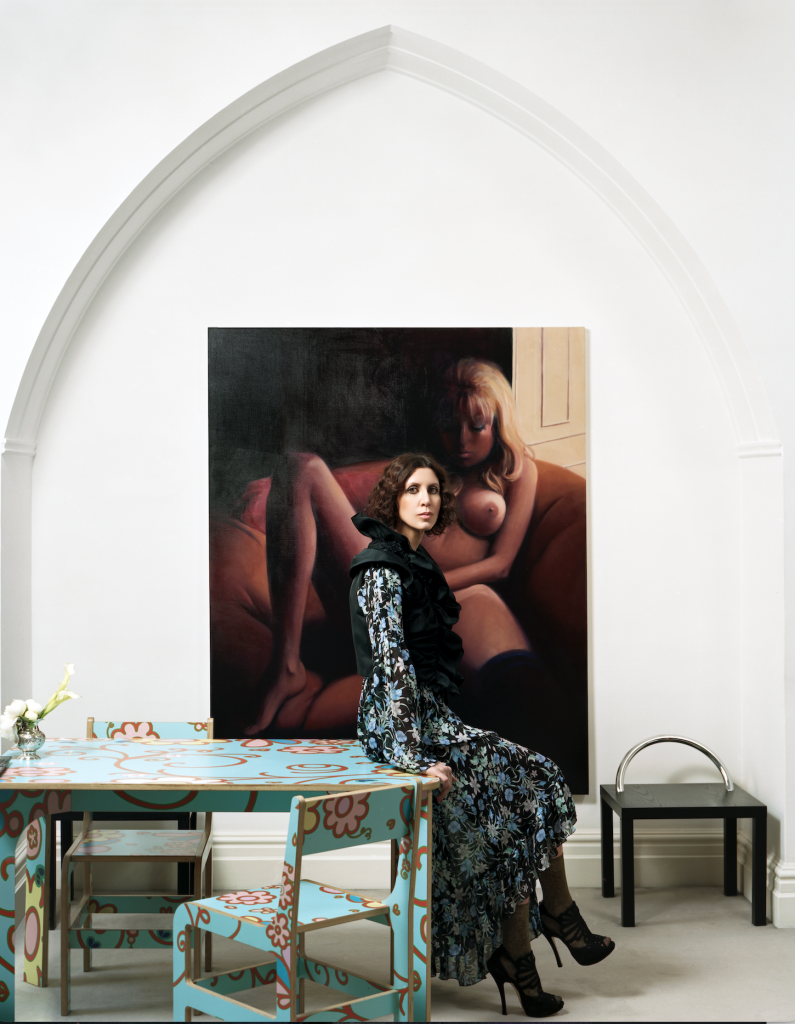Nachbau
2007 - Photography (Photography)
72.8 x 64.8 x 4.5 cm
Simon Starling
Invited in 2007 to the Museum Folkwang in Essen (Germany), Simon Starling questioned its history: known for its collections and particularly for its early engagement in favor of modern art (including the acquisition and exhibition of works by Cézanne, Gauguin, Van Gogh, Matisse), then destroyed during the Second World War, the museum was pillaged for its masterpieces of ‘degenerate art’ by the nazis. Starling found photographs of a hang dating back to 1929, taken by Albert Renger-Patzsch, the German New Objectivity photographer. Firstly, he researched the artworks that were presented then which for the most part had been restituted or acquired by private collectors after the war. Secondly, he reconstituted this hang. Finally, he took the same pictures as Renger-Patzsch, with the same ‘scientific objectivity’. The result is simple and minimal, and tends to erase any difference with the original. Playing on the notion of author, Starling identically reconstructs (‘Nachbau’ means reconstruction in German), thus he realizes an exact replica of the photographs taken seventy years earlier. By blurring temporalities, the artist manipulates the history of the collections and questions the outcome of the images and the institution in light of this actual reconstruction in the museum. This work can also be understood as an absurd attempt to go back in time in order to correct history.
Simon Starling provokes unexpected crossings between objects, materials and events. He produces hybrid works that seem to come from another space-time continuum. In 1995, he used the aluminium from a chair designed by Jorge Pensi to reproduce nine copies of a beer can found on the Bauhaus site in Dessau, thus creating a condensed history of design in a rather trivial object, turning a piece of rubbish found by chance into the clue of a historical lineage neither absurd nor authentic. While avoiding formal creation ex nihilo, the artist paradoxically behaves like a true demiurge. His works imply processes of metamorphosis quite similar to alchemy. He appropriates forms and objects and integrates them into complex networks of meaning which do not aim at revealing a hidden history but rather at drawing unseen paths that ultimately exist only because of his intervention. Simon Starling was born in 1967 in Epsom, UK. He lives and works in Copenhagen and Berlin.
Colors:
Related works sharing similar palette

© » KADIST
Zhang Kechun
2020Zhang Kechun’s photographic series The Yellow River documents the effects of modernization along the eponymous Yellow River, the second longest in Asia...

© » KADIST
Chris Huen Sin-Kan
2013Contrast to the bustling and unrelenting experience of a city such as Hong Kong, Chris Huen Sin Kan paints the tranquil interiors of his apartment, where he leads a modest and almost hermit-like life...

© » KADIST
Adriana Martínez
2015Her 2015 work Orión is a black flag-like cloth with glow-in-the-dark symbols embroidered in the shape of the constellation...

© » KADIST
Yuji Agematsu
2015Each day, Yuji Agematsu smokes a pack of cigarettes and wanders the streets of New York City looking for trash...

© » KADIST
Félix González-Torres
1992Behind the simplicity and beauty of this untitled photograph of a brilliantly-colored flowerbed by Félix González-Torres are two remarkable stories of love, loss, and resilience...

© » KADIST
Jumana Manna
2015Blue Elbow (Coude bleu) is made from plaster, burlap, lacquer, pigments and plastics...

© » KADIST
Gregory Halpern
2016Gregory Halpern spent five years shooting ZZYZX , and another year editing the results, from an estimated thousand rolls of film, about half of which were shot in the final year after his Guggenheim Fellowship enabled him to live in California...

© » KADIST
Online Seminar: Frequencies of Tradition With Anselm Franke, Ho Tzu Nyen, Chia Wei Hsu, Yuk Hui, siren eun young jung, Jane Jin Kaisen, Ayoung Kim, Hyunjin Kim, Hwayeon Nam, Emily Wilcox, and Soo Ryon Yoon The Times Museum and KADIST present three online sessions that consider tradition as a contested space, where one can critically reflect on Asian modernization and the Western canon...

© » ARTS EQUATOR
Weekly Picks: Malaysia (16 – 22 July 2018) | ArtsEquator Thinking and Talking about Arts and Culture in Southeast Asia Malaysia July 16, 2018 Hua (華) Settler Imaginary in Borneo , at Malaysia Design Archive, 19 July 8pm Academic Dr Zhou Hau Liew presents ‘ Preliminary Thoughts on the Hua Settler Imaginary in Borneo: Cultural Mapping, Revolutionary Communism, and the Ideas of Chineseness ’...

© » KADIST
Sandra Monterroso
2023Presented as part of a recent group of works titled The Paradox of Healing, Rhombus for Healing No...

© » KADIST
Binelde Hyrcan
2011Binelde Hyrcan’s video “Cambeck” is a playful study of four boys on a beach in Angola playing in a chauffeured car made of sand...

© » KADIST
Christopher Badger
2011Drowned Wood Standing Coiled (2011) consists of two sculptures, inextricably linked...

© » KADIST
Marcelo Cidade
2006This series of photographs reflects Marcelo Cidade’s incessant walks or drifting through the city and his chance encounters with a certain street poetry like the Surrealists or Situationists before him...







